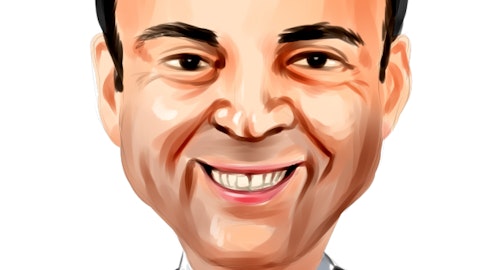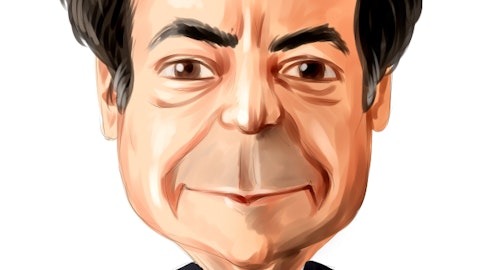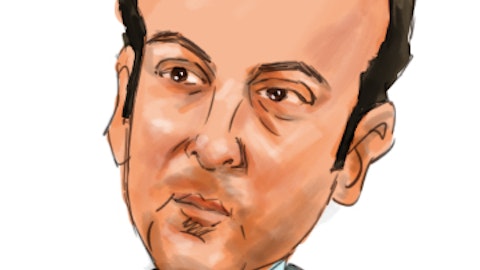High Frequency Trading Doubles In Nordic Markets (Market Watch)
High-frequency traders are continuing to build their presence on European stock markets with new data from Nasdaq OMX, revealing that the firms doubled their trading activity on the operator’s Nordic markets during 2011. Citadel Securities, the marketmaking division of the Chicago-based hedge fund, was the biggest high-frequency trading firm on the markets for a second successive year – trading equities worth EUR38 billion. It was the 12th-largest participant overall. Snapping at its heels was Spire Europe, a fast-growing spinout of U.S. hedge fund Tower Research Capital, as well as the European arm of the Chicago-based powerhouse, Getco. Both traded equities worth more than EUR30 billion on Nasdaq OMX’s Nordic markets last year.
5 Major Themes For Hedge Fund Investors In 2012 (Business Insider)
2011 was a mixed year for the major hedge funds. Renaissance Technologies, the statistical arbitrage fund with mythical returns, had another banner year. While John Paulson, the genius who shorted subprime, got crushed. Through November, the HFRI Fund Weighted Composite–an index of hedge fund returns–was down 4.5%.
Citigroup Sued Hong Kong-Based Hedge Fund Manager (Bloomberg)
Citigroup Inc. (C)’s Singapore unit sued Hong Kong-based hedge fund manager Raghavendran Rajaraman, seeking to recoup $1.03 million in trading losses the bank says he incurred after gold fell from a record high in September. Rajaraman had $19.2 million worth of gold in his account on Sept. 23 which the bank sold, along with other collateral, on Sept. 26 “in the face of a rapidly deteriorating market,” leaving a $1 million shortfall, according to a Nov. 18 lawsuit filed with the Singapore High Court. The first closed hearing is scheduled for Jan. 27. Rajaraman works with hedge fund 3 Degrees Asset Management and was a currency options trader with Citigroup in Singapore until 2007, according to the lawsuit. He hasn’t filed his defense and didn’t return three calls to his mobile-phone. Richard Healy, Rajaraman’s lawyer at Oldham, Li & Nie, declined to comment.
Hildebrand Battles Reputation Risk As Wife’s Trades Hurt Guardian Status (Bloomberg)
Philipp Hildebrand is under pressure to explain how he can act as guardian of the Swiss franc and allow his wife to trade the currency at the same time. Hildebrand, head of the Swiss National Bank (SNBN), will today break his silence on his wife’s purchase of dollars in August, the SNB said. That trade came three weeks before policy makers announced their biggest franc intervention since the 1970s. While an SNB probe cleared him of wrongdoing, some lawmakers and academics say the 105 year-old institution must do more to move away from a culture of bank secrecy. Hildebrand’s central bank only agreed to publish rules on personal financial ethics yesterday following days of speculation and local media alleging the former hedge fund manager of using insider knowledge to his advantage. While all three currency transactions that were investigated more closely were cleared, a dollar purchase over $504,000 carried out by Kashya Hildebrand without her husband’s knowledge was considered “sensitive,” according to an investigation carried out by PricewaterhouseCoopers LLP last year.
Arrowhawk’s Demise Spawns New Commodities Hedge Fund (FINalternatives)
Arrowhawk Capital Partners is closing up shop, but its commodities hedge fund will live on. Portfolio manager Jennifer Fan has founded Arbalet Capital. The new firm will roll out its maiden hedge fund, employing the same strategy that the 28-year-old Fan has used at Arrowhawk for two years, in April with at least $500 million in initial assets, Bloomberg News reports. That’s almost as much as Arrowhawk managed before deciding to close due to fundraising difficulties. Fan’s swaps-trading strategy returned 14% last year through November. Arrowhawk’s other funds were essentially flat over that period.
Asia Hedge Funds Face Attrition Amid Most Closures Since ’08 (Bloomberg)
Asia’s hedge-fund industry is set to shrink in 2012 after a year in which growth stagnated, performance faltered and managers struggled to raise capital. There were 123 Asian hedge funds that closed in the first 10 months of 2011, compared with 125 in all of 2010 and a record 184 in 2008 when the collapse of Lehman Brothers Holdings Inc. (LEH) roiled markets, according to Singapore-based data provider Eurekahedge Pte. Artradis Fund Management Pte, once Singapore’s biggest hedge fund, shut, while managers returning money to investors included CoreVest Partners and Kilometre Capital Management Ltd. Asia’s hedge funds are dwindling as most managers haven’t made money as a business or for investors, said Peter Douglas, principal of Singapore-based GFIA Pte. Hedge funds in the region manage $125 billion, lower than the peak of $176 billion in 2007, according to Eurekahedge.
Ex-Frontpoint Foo Plans $50 Min Asia Hedge Fund (Reuters)
Former FrontPoint portfolio manager John Foo is preparing to launch an Asia-focused hedge fund that will start trading with about $50 million (32 million pounds) on March 1 in Singapore. The Asia ex-Japan long/short Kingsmead Asian Alpha Opportunities Fund will be value-driven and offer fee discounts to initial investors as it seeks to grow assets in a tough capital-raising environment for hedge funds in the region. “We will be very competitive on fees because I think investors want value for money,” Foo told Reuters. “We are giving a founder class discount and are holding advanced discussions with a few parties on that,” said Foo, who once managed more than $200 million for the FrontPoint Asian Event Driven Fund.
Iridian To Liquidate Largest Hedge Fund After Performance Lags, Assets Slide (AR)
Iridian Asset Management, the $6.8 billion asset management firm founded by two veterans of Arnhold and S. Bleichroeder Advisers, has shuttered its largest hedge fund following a steady slide in assets and weak performance in 2010 and 2011. The fund’s portfolio managers, Jeff Silver and Ben Hunt, have also left the firm. The Iridian Opportunity fund, which launched in 2005, had run a global equity strategy managing as much as $860 million less than one year ago. But the fund was down 8.90% for 2011 through the end of October, when the Westport, Conn. firm stopped reporting returns to the AR database. By comparison, the AR Global Equity Index was down 2.56% during that period.
J.P. Morgan: Avoid These 11 Stocks (Market Watch)
J.P. Morgan analysts Thomas Lee, Daniel M. McElligot and Katherine C. Khor published a report entitled “US Equity Strategy FLASH” on December 9, 2011. They have listed a number of stocks to avoid that have high exposure to the European markets. All these stocks generate more than 27% of their sales from the European markets. Also, all of these stocks have been given either a neutral rating or an underweight rating by J.P. Morgan. Considering the macro uncertainties prevailing in Europe, we thought it would be a good idea to alert our readers to be careful when investing in these names. Here are 11 of the stocks with large European exposure…
Six Degrees Of Tiger Management (Bloomberg Hedge Brief)
Julian Robertson’s Tiger Management has spawned at least 30 so-called Tiger cubs—fund managers who are Tiger Management alumni, Bloomberg Markets reports in its February issue. The chart on the right displays some of this movement…
Maryland State Hires Hedge Fund Consultant (HFMWeek)
The $35.4bn Maryland State Retirement Agency (MSRA) has hired Albourne America as a hedge fund investment consultant. Albourne will advise investment staff on the Baltimore based system’s hedge fund portfolio, which represents roughly $2.5bn (7%) of assets overall. MSRA uses both fund of hedge funds (FoHFs) and direct funds, in a diversified mix of strategies which currently comprises of: Bridgewater Pure Alpha, Bridgewater All Weather, PIMCO All Asset, BlackRock Global Ascent, Mellon Global Alpha, DGAM Diversified Strategies, and Rock Creek Potomac Fund.
CTA Funds Could Prosper In Volatile 2012 (COO Connect)
CTA (commodity trading advisor) hedge funds could be net beneficiaries of market volatility and see capital inflows in 2012 as a result, one manager has argued. “Historically, volatility has been good for CTA managers and I believe they will benefit from their exposures in oil, gold and other commodities. Investors are going to take note and allocate money into these outfits,” said Peter Kambolin, chief executive officer at Systematic Alpha Management, a short-term systematic CTA with $150 million in assets under management (AuM).





